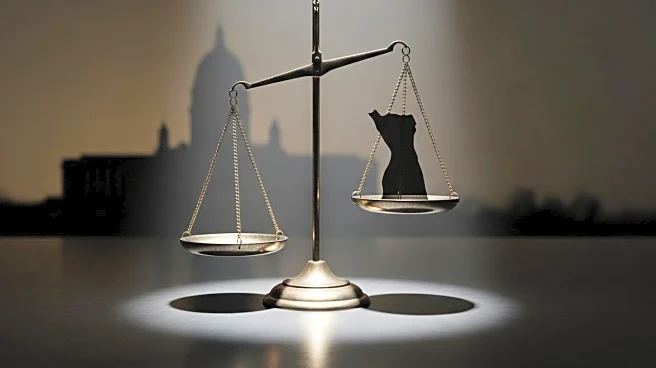What's Happening?
Recent developments suggest President Trump is attempting to politicize the Justice Department by directing actions against his political adversaries. Trump publicly urged Attorney General Pam Bondi to prosecute individuals such as James Comey, Adam Schiff, and Letitia James, whom he accused of wrongdoing. Additionally, Trump announced plans to appoint Lindsey Halligan, his former personal attorney, to replace Erik Siebert, the US Attorney for the Eastern District of Virginia. Siebert resigned after refusing to pursue a mortgage fraud case against Letitia James due to insufficient evidence. Furthermore, reports indicate the Justice Department closed a bribery investigation involving Tom Homan, a border czar, who allegedly accepted $50,000 from undercover agents.
Why It's Important?
These actions highlight concerns about the politicization of the Justice Department under President Trump. The appointment of political loyalists and the targeting of opponents could undermine the integrity and independence of the department. This situation may affect public trust in federal institutions and raise questions about the separation of powers. The closure of the bribery investigation into Tom Homan further illustrates potential misuse of the department's resources for political gain, impacting the credibility of law enforcement agencies.
What's Next?
The potential appointment of Lindsey Halligan and the ongoing scrutiny of the Justice Department's actions may lead to increased political tension and legal challenges. Stakeholders, including political leaders and civil society groups, may call for investigations into the department's conduct. The situation could prompt legislative efforts to safeguard the independence of federal agencies and ensure accountability in government operations.
Beyond the Headlines
The broader implications of these developments include ethical concerns about the use of government power for personal vendettas. The politicization of the Justice Department may set a precedent for future administrations, affecting the long-term stability of democratic institutions. This situation also raises cultural questions about the role of political loyalty in public service and the potential erosion of non-partisan governance.











